Welcome to another edition of Willoughby Hills!
This newsletter explores topics like history, culture, work, urbanism, transportation, travel, agriculture, self-sufficiency, and more.
If you like what you’re reading, you can sign up for a free subscription to have this newsletter delivered to your inbox every Wednesday and Sunday and get my latest podcast episodes:
My favorite movie growing up was Mary Poppins.
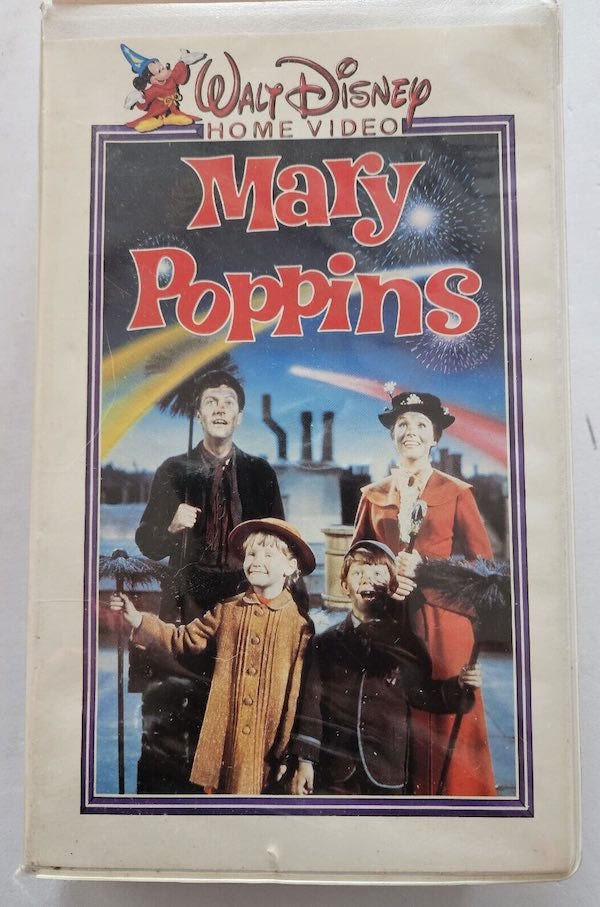
We couldn’t afford the fancy VHS tape that came in the puffy white case, so the version I watched was likely either taped off a rental or recorded during a Disney Channel free trial weekend. I reached for that video so much as a kid that my parents drew a red circle on the spine label so I could easily identify it on the shelf and load it in the VCR myself as a three year old.
Of course, at that age, I saw the movie as simply the story of two kids, cared for by an eccentric British nanny. It involved adventures in animated worlds populated by carousels, dancing penguins, and horse jockeys.
It was only much, much later in life that I realized that Mary Poppins isn’t really the story of the Banks children or their magical nanny at all. It’s really the story of their father, Mr. Banks, coming to terms with what it means to be a man and how best to be nurturing in a world where that’s antithetical to masculinity. (2013’s Saving Mr. Banks contextualizes and reinforces this theme, although my feelings about Mary Poppins predate that film.)
Mr. Banks (played by the great character actor David Tomlinson) is the breadwinner of his family. His job as a bank executive in a bank where his father previously worked allows him to provide for his wife and two children. They live in a large home in London with a staff which includes a cook, a maid, and a nanny. But because of the hard work Mr. Banks puts in at the office, he expects certain things when arriving at home.
Mr. Banks doesn’t want to talk about his day or share stories with the rest of the family; he wants to be waited on, then left alone to read the newspaper, smoke his pipe, or go about the other important business of being a man. He makes his expectations crystal clear when he first appears on screen at the beginning of the movie, singing these lyrics:
“I run my home precisely on schedule,
At 6:01, I march through my door.
My slippers, sherry, and pipe are due at 6:02,
Consistent is the life I lead!”
Mr. Banks is a detached father figure. He provides material things, but not love; a house but not a home. He doesn’t know how to share affection with his children.
Towards the end of the movie, Mary Poppins (played of course by Julie Andrews) suggests that Mr. Banks bring the children for an outing at his bank. It should be a chance for the father to bond with his two children, but instead, he ignores the things that bring them joy. The children, in a moment of fear, end up inadvertently causing a run on the bank and social panic, apparently for the first time since the Boston Tea Party.
After the chaotic scene at the bank, Mr. Banks thinks his firing from his job is all but inevitable. He sings the melancholic song A Man Has Dreams, where he comes to terms with the consequences of prioritizing his career. It opens with these lines:
“A man has dreams of walking with giants,
To carve his niche in the edifice of time.
Before the mortar of his zeal
Has a chance to congeal,
The cup is dashed from his lips,
The flame is snuffed aborning,
He's brought to rack and ruin in his prime”
Dick Van Dyke, who plays the jack-of-all-trades Bert, is listening to the song and retorts with this:
“You've got to grind, grind, grind
At that grindstone,
Though childhood slips
Like sand
Through a sieve.
And all too soon
They've up and grown,
And then they've flown,
And it's too late for you to give”
After that, Mr. Banks seems to realize that he has been chasing the wrong dream. He has succeeded at being a breadwinner while failing as a father. He goes on to get fired from the bank that evening, then stays up all night mending his children’s broken kite.
Mr. Banks shows his children the repaired kite and then offers to take them to the park to fly it. He is no longer the aloof parent, but is engaged, caring, and savoring the precious moments of childhood. In short, a new man with a renewed purpose.
Even after watching this movie hundreds of times as a kid, I still missed the message. Growing up as an American male, I understood that I had one very important role in my family: I was to be the bread winner. Bring home the bacon. Keep food on the table. My job as a father was not necessairly to be nurturing, compassionate, or patient. My job was to make sure our coffers were well coffered.
Ever since our first child was born 10 years ago, I have taken my role as breadwinner very seriously, sometimes more seriously than my role as a parent. My daughter was five weeks old when I boarded a plane to Albuquerque, New Mexico to film segments for Ask This Old House for a week. Could a coworker have covered that trip for me? Probably. But I was the producer of the show and it was my duty to be there, at least in my head.
My role as a new father could wait. After all, I provided a comfortable home, newer cars, and nice vacations for my family. I thought that I was doing my part.
That’s not to say that I was totally hands off in raising either of my kids. I changed diapers. I gave them naps in the sling when they wanted to cuddle with a parent. We went on bike rides together and rode roller coasters.
But I was also heavily invested in my career as a TV producer. After producing a public access show in high school and attending Emerson College to study TV making, I was in charge of a national PBS show. All of the pieces of my life were falling into place as I thought they were supposed to.
As I’ve written about before, my whole professional world came crashing down in early 2020 when I was laid off after 15 years, right as the pandemic was beginning. I suddenly found myself without the sense of purpose that I had gotten from my career and all of the validation that went along with that (from appearing at events to meet fans to winning Emmy awards). I was instead home with my wife and kids for the foreseeable future, with my wife now the breadwinner in our family and me a bit adrift.
By August of 2020, the future of the pandemic was still very uncertain and vaccines were not yet available. At that time, I attended a meeting at my daughter’s school to discuss their reopening plans. A group of us second grade parents gathered in masks on the lawn of the school. We were seated in a circle that was maybe 25 feet in diameter with six feet between all of us. We were so far apart we could barely hear each other over the street noise, but even then, it still didn’t feel safe to be gathered in a large group like this. The school had purchased new air filters and was requiring masking, yet returning to school just didn’t feel prudent to us. Although we also didn’t feel like we had much of a choice.
A few days later, a parent from the class emailed to let us know that she would be withdrawing her daughter for the 2020-2021 school year to homeschool instead. I had a few cousins that had homeschooled when I was younger, but it was never something that seemed like even a remote possibility for us.
I was producing my podcast, but was otherwise out of work still. Not knowing what the future looked like, it seemed hard to commit the next nine months to being a teacher, but it also felt like the world was telling us that it was the right move and we had another parent leading the way showing us that it could be done.
We took homeschooling very seriously. After deciding it was how we would spend the next school year, we scrambled to order a homeschool curriculum and to file the necessary paperwork to ensure we were doing things legally. I rearranged our attic into a classroom, built a simple desk out of pine, and hung some chalkboards on the walls.
Homeschooling ended up being the best thing that we could have done for our family. It bonded my daughter and I in a way that will keep us forever closer. It slowed my pace of life down to that of a second grader, a nice change from being the frenetic and stressed TV producer. I taught cursive writing, multiplication, science, and even some music. We opened a play store to practice addition, counting money, and making change. We boiled maple syrup to learn about nature and science. And every week, regardless of the weather, we spent Wednesday afternoons on a hike in the woods.
I loved homeschool, but after doing it for the full year, I was also ready for it to end and I think my daughter was eager to have more social time with kids her age. The universe even seemed to be telling us that it was time to move on, because on the last day of school, I received a call from a job recruiter that I was being considered for a full time position which I would later accept. The timing couldn’t have been better.
After a year and a half of being out of work and not contributing much beyond unemployment checks and the occasional freelance role to our family, I went back to being the breadwinner of the family. Our health insurance was again through my full time job, my retirement savings began to grow again, and both of our kids are now in school again.
Of course, like Mr. Banks, the experience of homeschooling for a year changed me, and I no longer view breadwinning and engaged parenting as mutually exclusive. Still, I miss that time.
Recently, we were sitting around the dinner table and my daughter expressed a desire to go back to homeschool. My son, who was too young for school at the time so never quite experienced it, also thought he might want to be homeschooled in the fall.
Our kids tend to say things without fully pondering the idea, so we tried to explain what they would be giving up by leaving school. They wouldn’t see their friends as often, they wouldn’t have class with the teachers they liked, they wouldn’t go on the same field trips. A few days passed, and they still kept on the idea of wanting to be homeschooled.
As I began to imagine what it would take to pull off homeschooling next year and what I might want to teach, my mind went big. We didn’t have an RV when we homeschooled last time, but now that we did, it could really shape how I taught and how my kids learned.
If we were learning history, we could read a textbook, or we could walk the battlefield at Gettysburg. Where better to discuss geology or erosion than the Grand Canyon? I began imagining potential classroom sites; from Dr. King’s church in Atlanta to the Everglades.
But then reality hit. Becoming a homeschool teacher would mean not only giving up my job, but also giving up the salary and benefits that go along with that job.
I tried to imagine other things that we could do for money so that I could still have some kind of breadwinning role but also the time to devote to teaching. Unfortunately, it all seemed to come back to working for somebody else on their schedule, or it would mean a drastic pay cut that would make this whole venture unsustainable.
I became a bit envious of literary characters like Pa Ingalls, whose sole job seemed to be providing enough food and firewood for his family. If he had extra crops, he could sell them to earn extra money for buying a handful of store bought goods to get the Ingalls family through another year.
Pa Ingalls didn’t have a boss, but he also didn’t have a mortgage, a car payment, a cellphone bill, or Netflix.
This all brings up the rather large and existential question of what are we doing here? If I only have one life to live (and I believe I do), is my time best spent making TV shows or videos that reach millions of people or is it better spent nurturing my growing children? I don’t know that either answer is incorrect.
A part of me understands that I have a strong skillset in video work, one that’s taken two decades of practice to begin to master. Not using those talents to help other people feels incredibly selfish, and frankly, my video work reaches millions of people.
On the other hand, isn’t our most important output our children? Is it selfish to try to give two people the best life possible, or is that the most selfless thing I can do? Or is it both?
For now, we seem to be leaning towards the notion that our family needs a breadwinner more than my kids need a parent who is also a one-on-one teacher. I think it’s incumbent upon my wife and I to look for ways to honor the spirit of homeschool and the notion of learning from traveling, even if the practical realities make being a full time teacher impossible.
After all, as much as I want to romanticize Pa Ingalls, it’s also worth remembering that the Ingalls girls attended school too, it was just of the one-room variety.
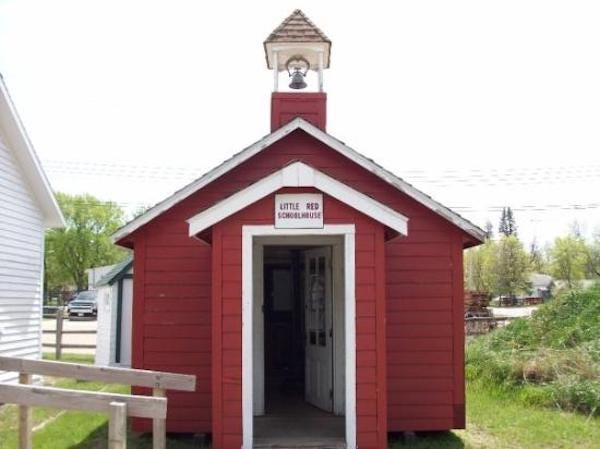
It’s worth recalling that even poor Mr. Banks didn’t quite learn his lesson. He was fired by the bank, stayed up all night to repair a kite, and then went to the park to spend time with his kids flying that kite.
But, at the park, he also encounters his old boss, who informs Mr. Banks that the bank president was so tickled by a joke Mr. Banks had told when getting fired that he “died laughing.” This left an opening for a new partner, a job which is offered to Mr. Banks on the spot and which he gladly accepts.
The optimistic song Let’s Go Fly a Kite leaves the viewer with the impression that Mr. Banks getting promoted has been a positive development, but what has really changed? Mr. Banks worked a job that was overly stressful so that he could afford “the good life” for his family. When he gets fired, he spends about 12 hours as an engaged father, only to be promoted into an even bigger role that will no doubt come with more stress and responsibility.
And thus, the cycle continues.
We can only hope that Mr. Banks found some manner of work-life balance and was able to reset expectations around what it means to be a working father in the England of 1910 (when the movie is set). The next time we see the Banks children is as grown adults in 2018’s Mary Poppins Returns, so it’s hard to know how they lived out the rest of their childhood.
In that sequel, Michael Banks, who was no more than 6 in the first movie, is now a widowed father with three children. His passion is art, but he recently accepted a role as a teller at the bank where his father and grandfather worked so that he can continue to provide for his children after his wife’s death. Breadwinning.
For me, the sentimental part of my personality longs to give it all up and be a homeschool teacher, unbound by the expectations of society, cruising the country in an RV and making a classroom wherever we stop for a few hours. But the practical part of me knows that it takes money to fill the gas tank on the RV and that health insurance is a good thing to have.
So for now, I will continue my role as breadwinner, but taking with me my own fanfic version of Mary Poppins 1 1/2. In it, Mr. Banks goes back to work at the bank, but also spends more time at home as an engaged, loving, and present father.
Because I like to think that Mr. Banks, Liz Lemon from 30 Rock, and I have something in common: the belief that we can indeed “have it all.”
Have you considered giving it all up to do something unconventional? Or have you done it? And was it a success, a failure, or something else? I’d love to hear from you in the comments!
Thanks for reading Willoughby Hills! Subscribe for free to receive new posts and support my work.
Related Reading
Three Years of Podcasting: What Have I Learned?
If you’ve missed past issues of this newsletter, they are available to read here.


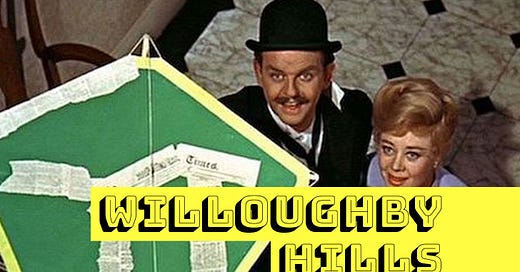


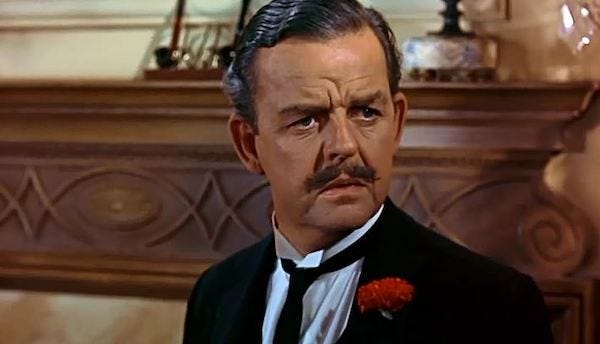
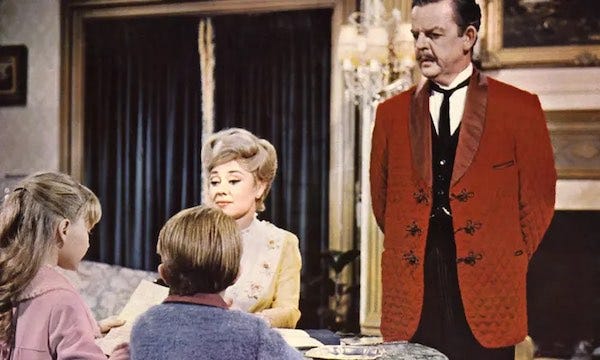


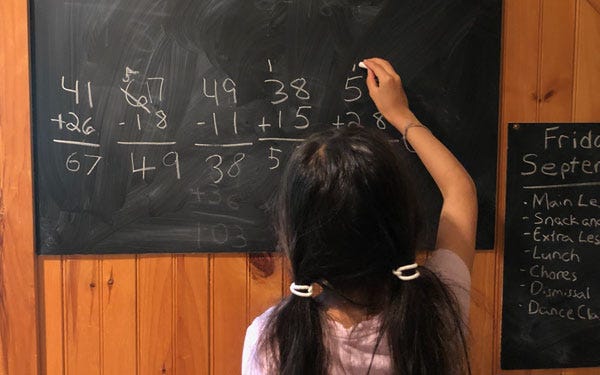
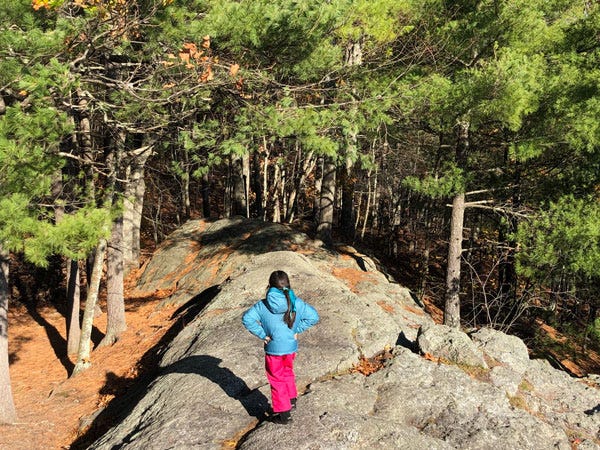
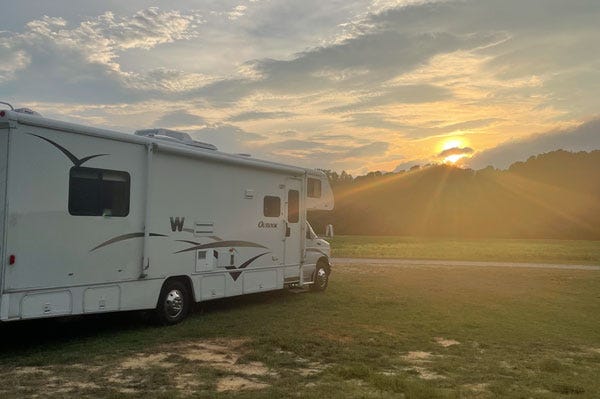
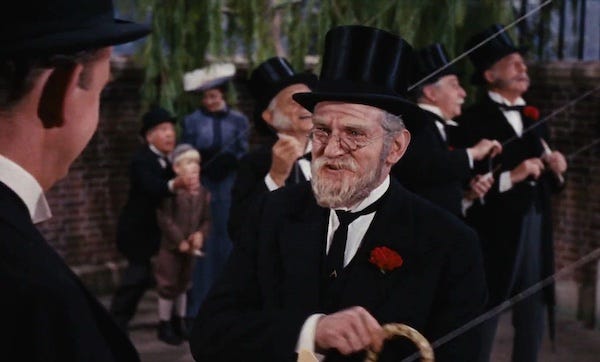
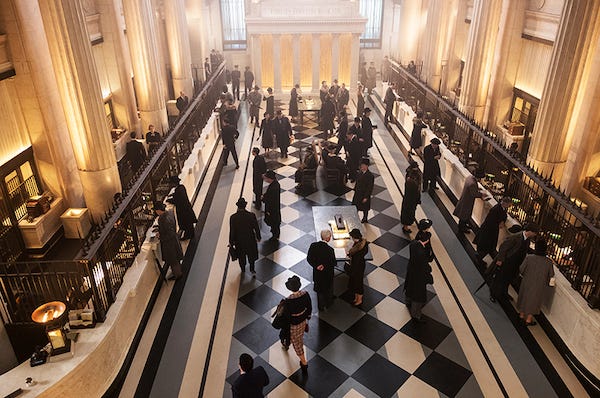
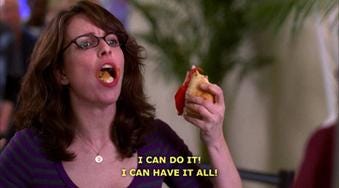
Great post, Heath. I became a single parent and pretty much had no social life for about 10 years. I'm so glad I took that time to be at home for my kids. It was so worth it. Home and family will always mean the most.